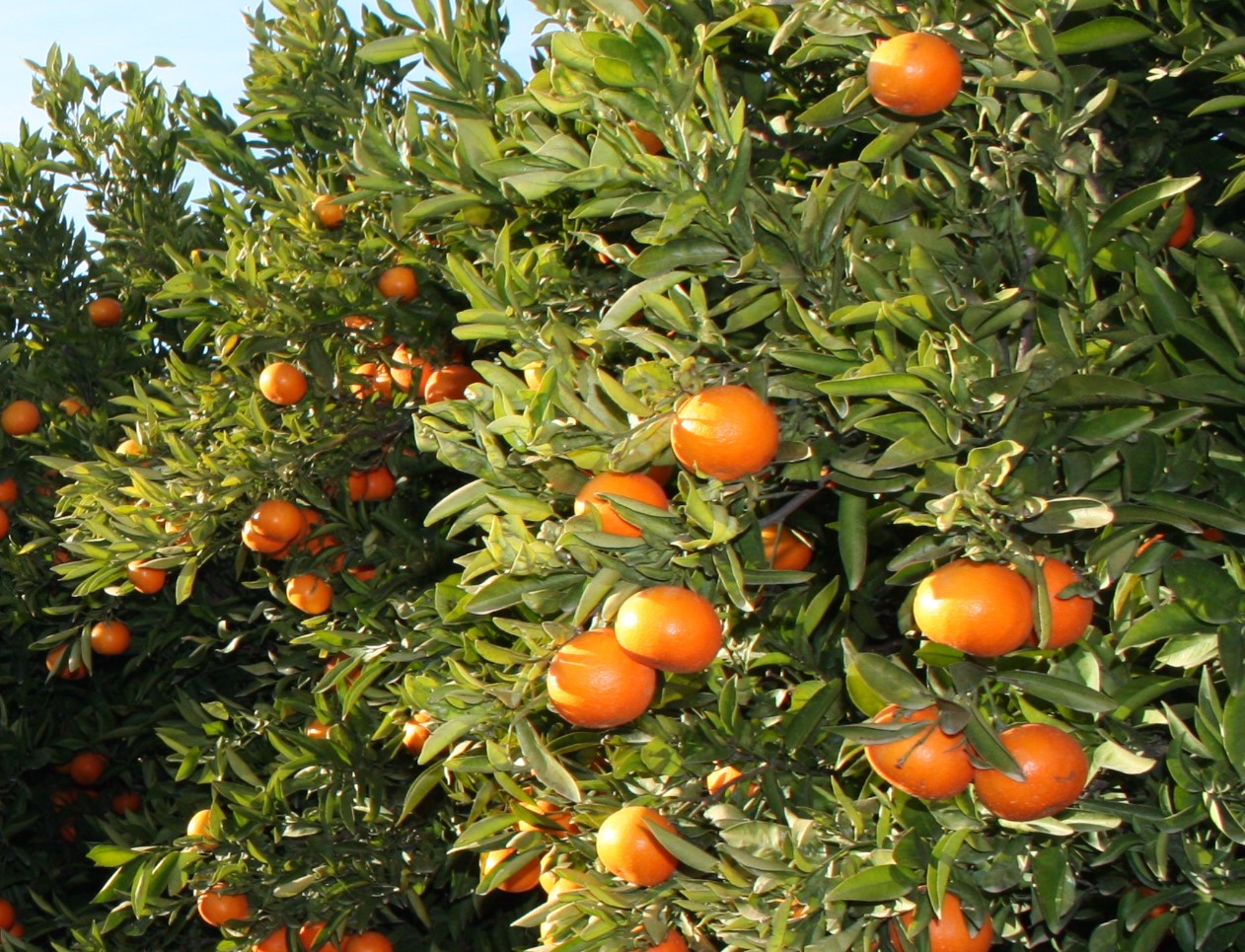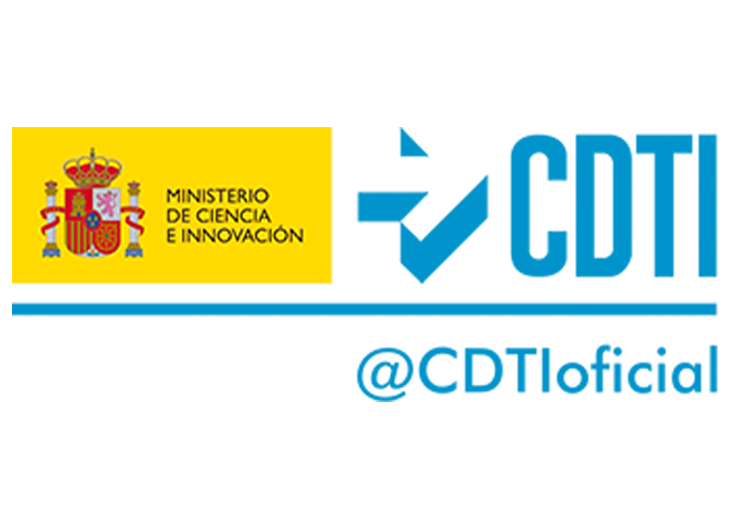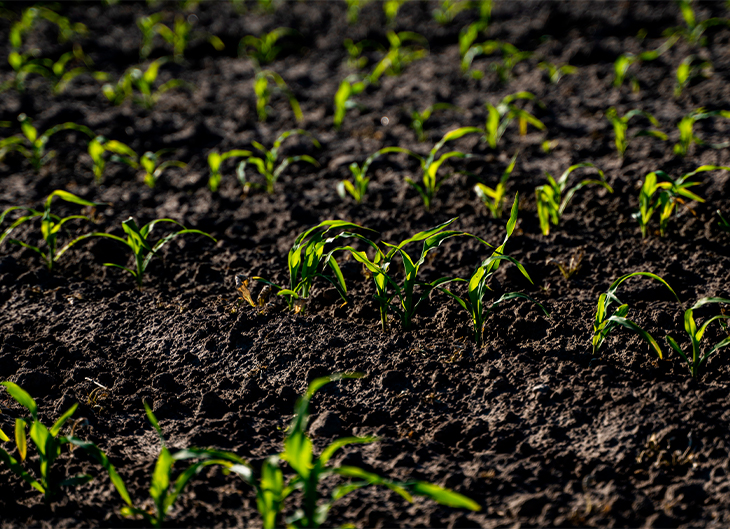
The importance of organic matter in agricultural soils
The soil, from the agrochemical point of view, can be considered as a dispersed system consisting of three phases: liquid, gaseous and solid, which constitute the mechanical support and, in part, the sustenance of the plants. In this set four components can be distinguished: mineral matter, organic matter, water and air, which are linked and mixed together, creating an ideal medium for plant growth.
The liquid phase, also called soil dissolution, is made up of water. In it are the dissolved macro and micronutrients, and it plays not only a function of structural stability, but also exerts a direct effect on the plants and organisms that inhabit it.
The gas phase, known as the atmosphere or air of the soil, is essential for the respiration of the roots of plants and the microorganisms that inhabit it, for the exchange of gases between the soil and the atmosphere and for the absorption of water and nutrients by the plant.
And finally, the solid phase constitutes the skeleton of the soil, and is constituted by the mineral fraction and the organic fraction. The solid mineral phase is formed by particles of various shapes, sizes and chemical composition that will provide the “texture” of the soil and is the main reserve of nutrients for the plant. On the other hand, soil organic matter constitutes only a small part of this phase and is made up of all substances of animal and plant origin that accumulate or apply to soils regardless of the decomposition phase. Organic matter plays a great role, not only in improving the physical and chemical properties of the soil, but also in terms of crop development.
Evolution of organic matter
During the evolution of organic matter in the soil, two phases are distinguished: humidification and mineralization (Gross and Domínguez, 1992).
• Humidification is a fairly fast phase, during which soil microorganisms act on fresh organic matter from the moment it is incorporated.
First the young, rapidly evolving humus is formed, which in turn gives way to the stable humus. Both products form the so-called total organic matter of the soil. Young humus is also called “labile” or “free”, because it is not yet fixed or linked to soil particles, but mixed with them, and in it there is intense microbial activity and can be considered as a fundamental element of soil fertility. Stable or “stabilized” humus is organic matter bound to the soil, that is, fixed to aggregates. Its composition is very complex (humines, humic and fulvic acids) and has a constant C/N ratio between 9 – 10, and represents 75 – 80% of the total humus.
• The mineralization phase is very slow, and in it the stable humus receives the action of other microorganisms that progressively destroy it (1 to 2% per year), thus releasing the minerals that will later be absorbed by the plants.
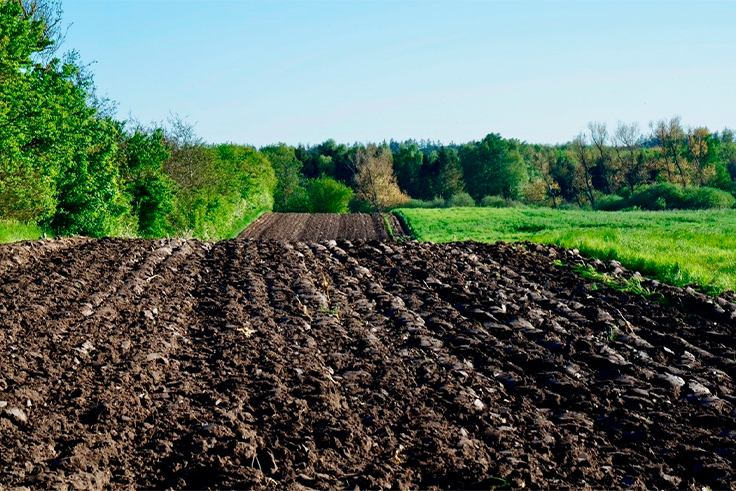
Effects of organic matter on soil
The organic matter acts on the properties of the soil in a direct way providing an evident improvement and favoring the optimal development of the crops translating into high yields. Thus, it influences:
- – on the physical properties of the soil:
- • Improves the structure, that is, lightens the plastic structures and adds the sandy ones.
- • Increases porosity in clay soils. Favoring the movement of water.
- • Increases the water holding capacity available to plants.
- – on the chemical properties of the soil:
- • Increases cation exchange capacity.
- • Facilitates the absorption of nutrients by plants.
- • Increases the availability of micro and macroelements.
- • It favors the formation of organic compounds with iron (Fe), manganese (Mn), zinc (Zn), copper (Cu) and others, facilitating its absorption by the plant.
- – on the biological properties of the soil:
- • Stimulates the growth and activity of soil microbial flora.
- • Favors its oxidation for the formation of compounds assimilable by plants.
- • Improves the germination capacity of seeds.
- • Improves energy exchange processes in plants.
- • Increases crop yields.
- – on the physiology of the plant:
- • Rhizogenic action, favoring the formation and development of roots, not only main, but also secondary.
- • Stimulating action, translating into a greater absorption of nutrients, accompanied by a better use by the plant.
Organic matter is a great indicator of the quality and productive potential of the soil, which is why it is considered one of the most important components of the soil when cultivating. Its presence is scarce and does not usually exceed 2% of the dry weight of the soil, presenting a lower percentage when it comes to punished or overexploited soils. This has motivated the constant search for an increase in the content of organic matter in the soils through different cultivation techniques or contributions of different origin.
In this sense, Agrométodos makes the AGROMET-15 product available to the farmer. This product from leonardite and by its special formulation, presents an optimal balance of humic and fulvic acids with a pH ≥ 11.
The natural humic acids contained in AGROMET-15 have a high cation exchange capacity that increases the availability and retention of soil nutrients, avoiding losses due to washing. AGROMET-15 also includes in its formulation an adequate proportion of fulvic acids, which stimulate beneficial soil microorganisms that are capable of solubilizing blocked nutrients, promoting root development and, finally, stimulating crop growth.
Due to its condition as an organic colloid and the great activity and mobility of its molecules, it is capable of complexifying and solubilizing the elements of the soil.
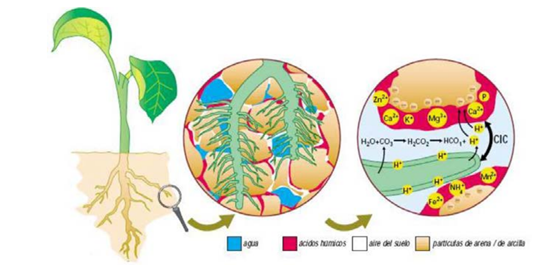
AGROMET-15 brings multiple benefits for crop development and interferes in different ways in soils:
- •Provides the soil with perfectly assimilable organic matter.
- •Increases the water retention power in the soil.
- •Sponge heavy and compact floors, difficult to work. Improving the structure of the soil.
- •Enhances the germination of seeds.
- •Increases the effect of herbicide broths.
- •Stimulates rhizogenesis (better rooting).
- •Promotes the development of microbial populations in the soil.
- •Keeps soil cations (iron, manganese, zinc, copper, etc.) in changeable form, assimilable by plants.
- •Stimulates plant nutrition, facilitating the absorption of nitrogen, phosphorus and potassium and a better assimilation of the nutritious elements of the soil through the roots of the plants, because it acts as a reserve of nutrients.
- •Reduces erosion by increasing water filtration and by aggregates that form in the soil.
- •Favors that the nitrogen is more stable.
- •Improves the buffering power of the floor.

